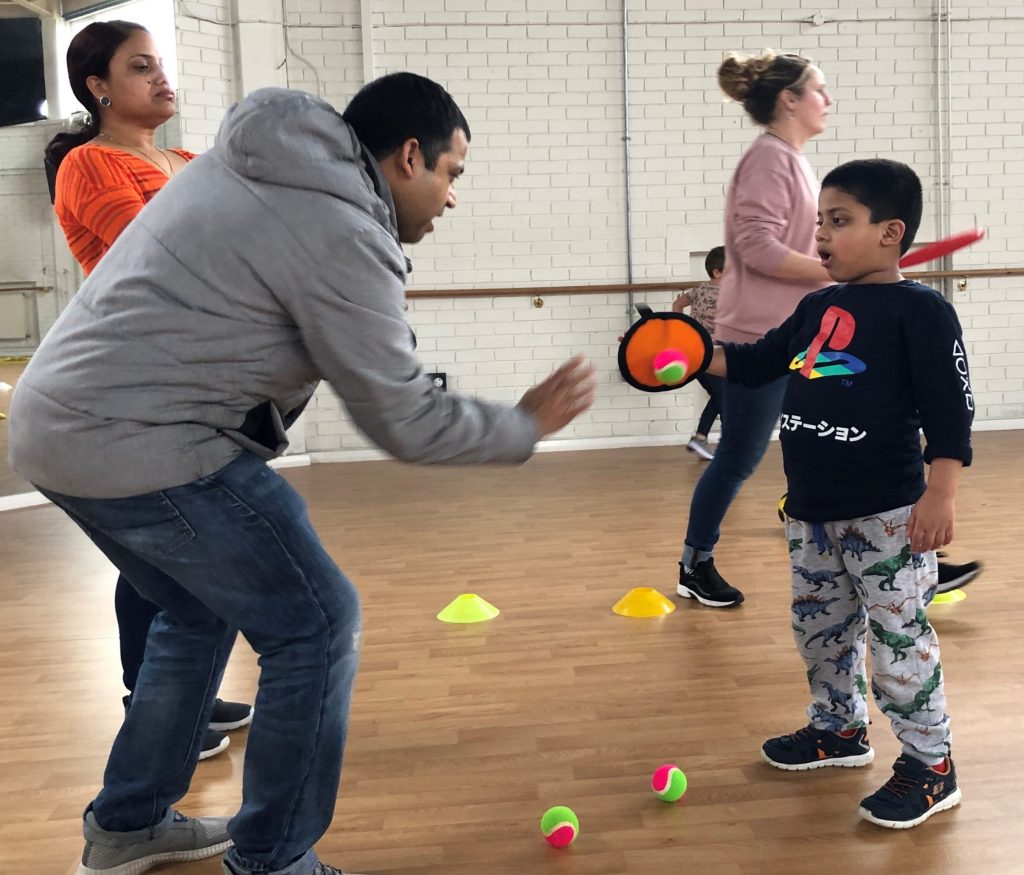Prof. Leigh Robinson describes the lessons learnt from Sport Cardiff’s programmes to get people moving during Covid-19.
Registration for the IWA’s event exploring access to sport during the pandemic is available here: Rethinking Wales: Community Sport and Inequality.
The impact of Covid in exacerbating inequalities facing individuals and communities will be one of the enduring legacies of the pandemic.
Continuing to provide access to sport and physical activity through the pandemic has been the main focus of Sport Cardiff, the sport development team based at Cardiff Metropolitan University.
A joint venture between Cardiff Met and Cardiff City Council, the mission of Sport Cardiff is to tackle inequalities through the vehicle of sport and physical activity.
The last 15 months has certainly provided many challenges to this, however, not only have the team continued to deliver key programmes and projects, but they have also launched a number of new initiatives with a focus on those living in the Southern Arc of the city.
Family Fun is a project which is part of the Street Games’ Family Engagement Project which went digital. This project which engages with families who are inactive, isolated or who have challenging circumstances which may impact on their health and wellbeing, was intended to be delivered face to face in community settings.
“Providing equipment for people to take part in their own homes is important, but what is more important is providing a clear explanation of what to do with that equipment.”
Following lockdown, Sport Cardiff developed a series of 30 games for the whole family, using everyday household items as equipment, videoed and shared these across a number of social media platforms. This led to the development of a YouTube channel where all the games can be found in one place.
However, conscious that not all families have access to social media or the internet, the team also produced a leaflet with basic instructions of how to play five of the “Family Fun At Home” games.
500 leaflets were distributed to families living in areas of deprivation with the help of community partners such as Oasis and the Hubs, ensuring the leaflets reached the target audience.
The Active at Home project emerged as a consequence of Covid and aimed to support people across the city to be physically active in their own home, by supplying them with an Active at Home pack which included equipment and supporting resources.
The target audience was people who had been potentially disproportionately affected by the pandemic, such as people living in areas of deprivation, disabled people and people with long term health conditions.
200 packs were developed and Sport Cardiff collaborated with key partners working with disabled people and/or people living in areas of deprivation to promote the project and to encourage applications for the packs.
The packs contained equipment that can be used seated or standing and included items such as resistance bands and juggling balls so people could engage in activity even if they had to stay indoors and had limited space available.
Innovative. Informed. Independent.
Your support can help us make Wales better.
Additional items were added to packs for households where someone had a visual impairment or an impairment affecting co-ordination. Alongside the equipment, the packs also contained resources to help people to use the equipment.
For example, the packs contained a leaflet with fun challenges to using the equipment, such as Use cones to make a square. Can you get all 3 juggling balls into the square without missing?
People could choose how big the square should be, how far away it was placed and how they propel the balls. The language used was inclusive throughout such as “move” rather than “walk” or “run”.
As far as possible, the Sport Cardiff team have found ways of continuing to tackle inequalities using sport and physical activity. It hasn’t been easy, and a number of learning points have emerged over the past 15 months.
The first was that providing equipment for people to take part in their own homes is important, but what is more important is providing a clear explanation of what to do with that equipment.
The feedback from both the Family Fun and the Active at Home programmes made it clear that the leaflets and videos that set out what to do with the equipment meant that people were more likely to use it.
“Online sessions are a poor substitute for face to face sessions… Many people do not have access to necessary technology or internet capacity”
Second, although used to collaborative working, the pandemic has placed even greater importance on working with community partners that can facilitate access to those for whom the initiatives are intended.
The support that community groups have provided Sport Cardiff has been fundamental to ongoing delivery and a number of partnerships have been created and/or strengthened over the last 15 months.
The final and somewhat obvious point is that online sessions are a poor substitute for face to face sessions, for a number of reasons. Many people do not have access to the necessary technology or internet capacity in order to engage with online fitness or physical activity.
It’s very difficult to monitor levels of ability and levels of effort virtually and it’s even harder to create a sense of belonging or community and building rapport is difficult.
These things are key to developing commitment to participation and this is perhaps the biggest lesson the team have learnt during the pandemic.
The move to online was relatively straightforward in terms of delivery but is not a convincing solution to tackling inequalities through sport and physical activity.
All articles published on the welsh agenda are subject to IWA’s disclaimer.
Registration for the IWA’s event exploring access to sport during the pandemic is available here: Rethinking Wales: Community Sport and Inequality.





